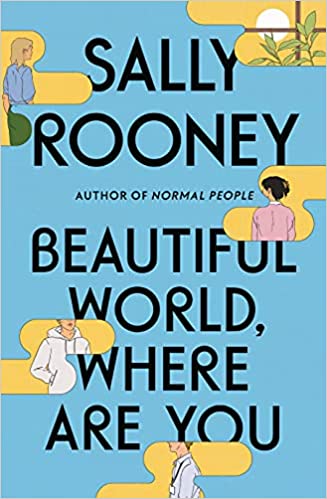
SEC & Crypto: Conversations with Friends
The U.S. Securities & Exchange Commission is a large independent agency of the United States federal government, created in the aftermath of the Wall Street Crash of 1929. The primary purpose of the SEC is to enforce the law against market manipulation.
The Biden administration is taking a more hands-on approach to the highly volatile, little understood, & barely regulated cryptocurrency industry. Cryptocurrencies are decentralized digital currencies secured by blockchain technology. Bitcoin, Ethereum, Litecoin & other cryptocurrencies have become almost as accessible as government-issued currency in recent years, but the government offers few consumer protections for them.
INFORMATION RELATING TO FORWARD LOOKING STATEMENTS
Certain statements contained in this document constitute forward-looking statements within the meaning of the Private Securities Litigation Reform Act of 1995. For these purposes, forward-looking statements are statements that address activities, events, conditions or developments that the Company expects or anticipates may occur in the future.
In some cases, forward-looking statements can be identified because they contain words such as “anticipate,” “believe,” “continue,” “could,” “estimate,” “expect,” “intend,” “likely,” “may,” “might,” “plan,” “potential,” “predict,” “project,” “seek,” “should,” “target,” “will,” “would” or similar expressions & the negatives of those terms.
Such forward-looking statements involve risks & uncertainties that may cause actual events, results, or performance to differ materially from those indicated by such statements, including, without limitation, the factors set forth related to the Risk Factors & other factors in Management's Discussion & Analysis of Financial Condition & Results of Operations.
Forward-looking statements speak only as of the date they are made, & we do not undertake to update these statements, except as required by law.
“Open source is way better at complex problems than simple problems.” ~ Bill Gurley
“Why do we use government dollars to fund stuff that becomes proprietary?” ~ Bill Gurley
The Securities & Exchange Commission (SEC) ~ led by Gary Gensler, who taught a class on cryptocurrency at MIT ~ is trying to make the case that it can & will regulate whatever cryptocurrency investment schemes it decides fall under its purview. The relative newness & rapid expansion of the cryptocurrency industry have put it in a regulatory gray area. The Internal Revenue Service (IRS) classifies crypto as property. The Commodity Futures Trading Commission (CFTC) considers crypto to be a commodity. The SEC has said that digital assets “may be securities, depending on the facts & circumstances.” A security is a financial asset that can be traded, like stocks & bonds, & which is governed by several laws designed to prevent fraud & protect investors.
The SEC appears to have decided that an upcoming offering from Coinbase, the largest cryptocurrency exchange in the United States, meets its definition of a security. It’s showing that it will step in & regulate it accordingly ~ by extension, regulate the rest of the crypto finance industry more assertively.

Cryptocurrency exchanges allow people to buy & sell crypto. Coinbase is one of the biggest in the world & recently went public. It was planning to launch a program called Lend, which would allow investors to let others borrow from them a form of crypto called USDC, a “stablecoin” whose value is tied to the value of the US dollar (one USDC is always supposed to equal & be traded for the value of one US dollar). In exchange, lenders would receive 4 percent interest on the loan ~ a far higher rate than traditional banks currently offer on their savings accounts. This could have made the Coinbase Lend offering very attractive to consumers who wouldn’t have otherwise risked investing in crypto.
That’s where the SEC stepped in, according to Coinbase. The company announced on Wednesday (or late Tuesday, if you count a Twitter thread from CEO Brian Armstrong) that the SEC threatened to sue the company if it launched Lend, but that the agency wouldn’t tell Coinbase why it considered Lend to be a security, except that it was doing so “through the prism of decades-old Supreme Court cases.” These cases, informally known as Howey & Reves, are the prism through which every potential security is considered, including crypto services. Coinbase said it wanted formal guidance from the SEC on how it was using those cases to determine if Lend was a security, but the SEC wouldn’t provide it.
The SEC has not officially commented yet, though some people think this tweet qualifies as a response.
What exactly are bonds & how do they work?
— SEC Investor Ed (@SEC_Investor_Ed) September 8, 2021
We’ve got a 30-second overview 👇 pic.twitter.com/RZul1SIXAW
The people behind Coinbase might be (or at least claim to be) clueless, but the SEC almost certainly knows what it’s doing here: asserting its regulatory control over the world of cryptocurrency banking & finance. It’s doing so with a pugnaciousness not typical of the agency, according to anonymous former SEC officials who spoke to Bloomberg.
As the New York Times recently explained, cryptocurrency is moving into the banking sector, offering services that are usually reserved for traditional banks, whose services are backed by government-issued currency (the dollar, for example) & have operated under consumer protection laws & regulations that go back decades. For example, some crypto companies now offer interest-bearing crypto accounts, debit cards, & credit cards with cryptocurrency rewards
Sen. Elizabeth Warren has called these “shadow banks,” noting they aren’t federally insured & could be more susceptible to hacks & fraud than traditional banks. She’s written to Gensler about her concerns, & in his August 5 response, the SEC chair agreed that “investors using these platforms are not adequately protected.” He also said there were certain activities that the SEC can regulate, & that he believed lawmakers should prioritize legislation that addressed crypto trading & lending.

The SEC has previously shown an interest in cracking down on crypto. It launched a crypto regulation initiative in 2018, which became a standalone office within the agency last December. It recently charged another crypto lending platform, BitConnect, with $2 billion in fraud for operating what the Department of Justice called a “textbook Ponzi scheme.” Another crypto company, BlockFi, which offers loans & high-interest deposit accounts backed by crypto & a credit card with a crypto rewards program, has been the subject of investigations from several state-level security regulators.
But Coinbase is bigger & more high-profile than those companies. GlobalData’s Monaghan didn’t expect the fallout to be significant for Coinbase itself, as the Lend program wasn’t yet active. But the SEC’s interest in Coinbase is a sign to every crypto finance company that there are still rules they have to follow & they should expect consequences if they don’t.
Those rules might be bulked up in the near future as the Biden administration & lawmakers work to address the regulatory gaps cryptocurrency falls into. Biden’s proposed 2022 budget included crypto reporting requirements, the IRS is cracking down, & crypto regulations even became a temporary sticking point in the passage of the infrastructure bill. Adding to this ~ or perhaps exacerbating it ~ is concern over how cryptocurrency can be used to facilitate criminal activities; ransomware attacks often demand payment in bitcoin due to the difficulty in tracing those payments.
BlockFi Commences Restructuring Proceeding to Stabilize Business & Maximize Value for all Clients & Stakeholders
Founded in 2017, BlockFi is building a bridge between digital assets & traditional financial & wealth management products to advance the overall digital asset ecosystem for individual & institutional investors.
On November 28, 2022, BlockFi filed voluntary cases under Chapter 11 of the U.S. Bankruptcy Code. This action follows the shocking events surrounding FTX & associated corporate entities (“FTX”) & the difficult but necessary decision was made as a result to pause most activities on the platform to stabilize its business & provide the Company with the opportunity to consummate a comprehensive restructuring transaction that maximizes value for all clients & other stakeholders.
Platform activity continues to be paused at this time. BlockFi has US$256.9 million in cash on hand, which is expected to provide sufficient liquidity to support certain operations during the restructuring process.
Additional information regarding the chapter 11 cases, including court documents & claim information, can be found by visiting BlockFi’s claims agent Kroll at https://restructuring.ra.kroll.com/blockfi/.
"Most of our attempts throughout human history to describe the difference between right & wrong have been feeble & cruel & unjust, but that the difference still remains ~ beyond ourselves, beyond each specific culture, beyond every individual person who has ever lived or died, & we spend our lives trying to know that difference & to live by it, trying to love other people instead of hating them, & there is nothing else that matters on the earth." ~ Curated Excerpt From: Sally Rooney. “Beautiful World, Where Are You.” Apple Books.
Curated via recode by Vox. Thanks for reading, cheers! (with a glass of wine & book of course)

2012 Truth Red Blend Napa Valley
Producer: Axios, Napa Valley, Napa County, North Coast, California, USA
"Big, blowzy style with ripe fruit, dusty tannins and a savory finish. All fruit. Drink now." ~ 90 Points ~ James Suckling

Beautiful World, Where Are You: A Novel
Alice, a novelist, meets Felix, who works in a warehouse, and asks him if he’d like to travel to Rome with her. In Dublin, her best friend, Eileen, is getting over a break-up, and slips back into flirting with Simon, a man she has known since childhood.
Alice, Felix, Eileen, and Simon are still young ~ but life is catching up with them. They desire each other, they delude each other, they get together, they break apart. They have sex, they worry about sex, they worry about their friendships and the world they live in. Are they standing in the last lighted room before the darkness, bearing witness to something? Will they find a way to believe in a beautiful world?

